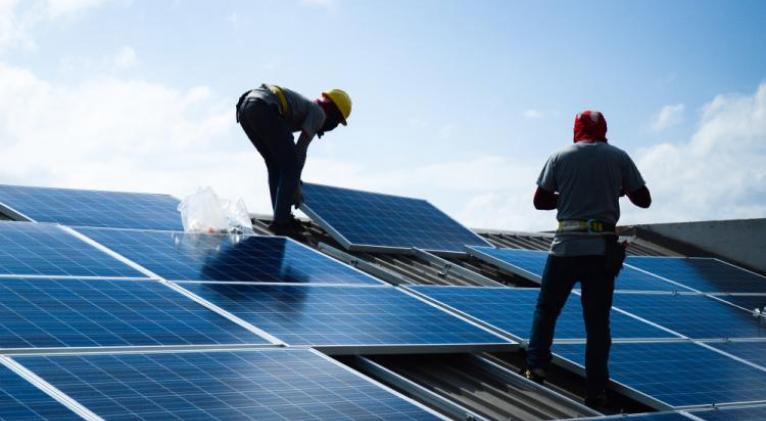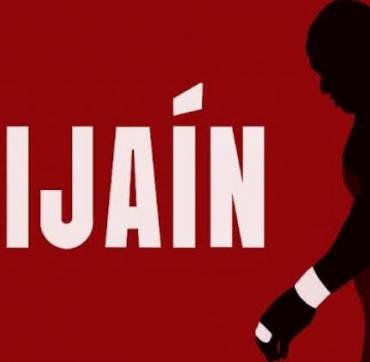Carlos E. Albona: "I Just Want to Cooperate to Have a Better Country"
especiales

He says and he does. Less than an hour of conversation on the lawn of a park in Havana leads you to suspect that this Cuban works, himself, with renewable energy, like his house and his car, where he has for several years already installed solar panels.
"I have something like what García Márquez said about Fidel, that he was going to the future and come back to tell you what was going to happen or that he could hear the grass growing around around the bend... something like that, but a little more modest "This is how he explains to me the fact that he decided to invest in renewable energy generators long before the authorization to import this equipment with tariff facilities were “the rush".
Until this determination they were driven by an ecological sense or what he likes to call "green thinking", and later joke about the green of ecology and not that of dollars. His partner, Ileana Ruiz, accompanied him on the adventure since the beginning, when it could seem like the madness of a taxi driver dazzled by the stories of some clients, officials from the Electricity Union, about the first photovoltaic fields that were being planted in the country:
"I had read very little about the subject but I was curious and then we entered one of them. What I saw was a marvel of how the system worked and the idea came to me. From there I began to investigate, to learn about it, searchign in the Internet on my own... "
Another of his many facets, sports, took him to San Francisco, California, to participate in a Triathlon competition, however, the sun and its powers ended up catching him in the middle of the tournament: "California is the cradle of Tesla, electric cars, wherever you turned there were solar panels. It have travelled far in this renewable energy and in the city you see how all these things are implemented, there are windmills (wind generators), there are exclusive parking lots for electric cars ...
From Dream to Reality
From the decision to the determination and from there to the facts. It's a short sentence to write, but the road to getting the Alamar apartment where Carlos and Lily live to be powered for most of the day with solar energy was not short, much less easy:
"I don’t doubt that the Cuban State was already thinking about this, but there was a legal gap and we had to delve into this gap. Many times we stumbled. Before making any investment we met the Customs legal officer and there was not a regulation, a law, a legal norm, nothing that had to do with solar panels or any other renewable energy source. So we suggested that, if they had planned the entry of a power plant, the power for solar panels could be equated and it was a way of introducing something that’s very necessary and that could be the future of Cuba. We had to search the impossible within the possible. Sometimes we found officials who understood perfectly and sometimes we found others who hesitated, because of the fear of change, the insecurity of getting out of their comfort zone ... The obstacles don’t always have to do with people having a bad vibe, but with a lack of knowledge.
"We wanted everything to be legal, straight forward, all clean. As we had not noticed that at the level of self-consumption, that is, people on their houses or at the community level existed in Cuba, we asked on the Office of the Electric Company in Alamar if there was any inconvenience and they said “no problem”. But there were a few and not in the will to do it, but technical inconveniences, the Electric Union was not prepared to assume these changes due to a question that they had no way to invest, for example, in changing the electric meters ... "
However, that "detail" didn’t stop Carlos' plans: "The first thing we did was, before installing the panels, save energy in the house as much as possible, otherwise, to be able to compensate with the amount of energy you need, we would have to install a very large system and that would mean more money.
So, first we looked for the greatest simplicity in our life, so that the investment would be as efficient as possible. We had three options and we used the cheapest one. One was to buy panels to produce electricity with injection into the grid, another with accumulation of energy, which takes batteries and the other a hybrid system.We start with the simplest, although it also has its complexity.
"In reality, we now don’t consume electricity from the grid between 9:00 A.M. untill 4:00 P.M. The house is fully supported by solar panels during that time, with all functions, except the air conditioning and we have plenty of power. We export that surplus to the traditional electricity grid. In summer, we are consuming between 8 and 10 kilowatts a day and we deliver between 2-3 to the grid.
"With the meter we had, that surplus was also charged to us as consumption, but when the electricity rates changed we began the battle to change that. It was a huge battle in the Ministry of Energy and Mines, where it was not as fast as we wanted, but it was possible. We found people who understood the problem, who had this same set of mind and we managed to change the meter. At this moment the company pays me, through a contract, 1.50 pesos per Kwatt which I provide to the electricity grid ...
And there’s the next "battle" is planned, but Carlos hopes to fight it as a team, with other Cubans who decide to contribute to the generation of renewable energy: It’s about updating the payments he receives from the company based on the new electricity rates, so that the relationship is more balanced. In any case, he and his partner, even without the new payment standard that should come, are happy: "We never think of this as a business, but as a saving measure that does work."
From experience, a council says and repeats for those who are willing to opt for these energy alternatives: "You have to prepare yourself to do any of these projects, it doesn’t mean that you become a specialist, but you have to have a bit of knowledge about it. Because, for example, when we went to buy the panels in Miami, language was not a hinderance, but knowledge was, people try to sell you what suits their interests, because they charge a commission, then you have to show a certain knowledge on the subject so that people start to respect you".
But without thinking twice, he would do it again: "We’re living proof that it does work. The initial investment is high, however a solar panel can last for 25 years and let's say that in Cuba you can take seven or ten years to compensate your investment, but from the first moment you install your equipment, you are already saving and you already have a benefit, which is psychological and strong, because it’s not the same as an electricity bill that comes with a thousand pesos, than with 30 or 40".
Another Energy Revolution
Carlos believes that is the goal or should be going to, but it involves "updating our thinking of technology: adapting, requalifying, transforming marketing strategies, it cannot be that an inverter device, which is economical, costs more than a regular one, if the purchase of the former were more stimulated, it would imply profits for the personal economy and also for the country's economy, that is, prices should favor saving or ecological technologies.
"It’s important to ask that you turn off the unnecessary lights, that was in fact the first thing we did, but we must also promote renewable energies, which is not only solar panels, it can be a mini wind generator, which meets the same function, only using the wind, not to mention hydraulic energy, you could put a generator on a water pipe that is pumping ... "
Adapting the offers that exist within the country to the conditions of Cubans is another of the strategies that, in Carlos's opinion, could stimulate the acquisition of these devices. He doesn’t mean that there are subsidies or free, but diversity in terms of the capacities of the solar panel packages, for example, so that some of them can be reached by a greater number of pockets.
"What would I like to promote? Another energy revolution, which is necessary. There’s a plan for year 2030 to incorporate a percentage of renewable energy generation as a State goal, but why not make a plan of the possibilities that the residential sector have? Every time there’s an energy deficit, what does the State do, commit sepuku to save the residential sector and the Antillana de Acero, for example, affects its production. That is a boomeran. Why not incorporate the residential sector into that idea? There are many people who can’t, but there are many who do have the chance and the interest ".
On his behalf, he is open to cooperate, promote, drive: "I don't want to be a protagonist, I don't want to be a leader at all, I just want to cooperate to have a better country." Carlos looks to the future for schools and polyclinics in his homeland powered by renewable energy. If you give him a few minutes, he explains the total cycle in which each one contributes and we all benefit. "The state is under a lot of pressure" he tells me, convinced that all the work cannot be burden onto the State. If you give him a few minutes, he convinces you that there are not impossible things and that what’s possible is within socialism.
Translated by Amilkal Labañino / CubaSí Translation Staff














Add new comment